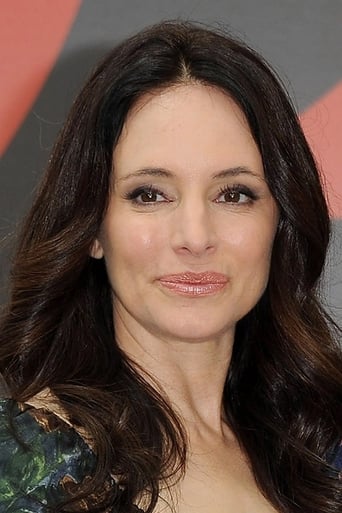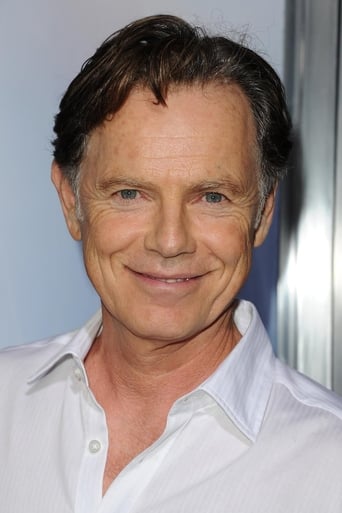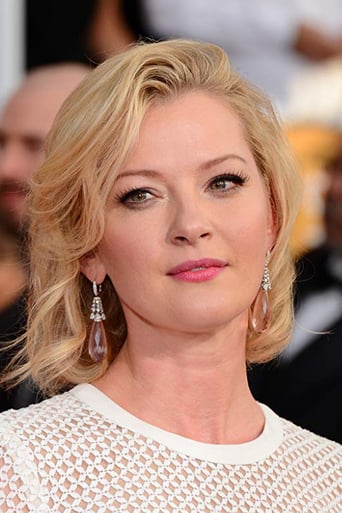Libramedi
Intense, gripping, stylish and poignant
ScoobyMint
Disappointment for a huge fan!
Solidrariol
Am I Missing Something?
Leoni Haney
Yes, absolutely, there is fun to be had, as well as many, many things to go boom, all amid an atmospheric urban jungle.
gfvaughn
Great film, like classic literature, provides a window into human nature, motivation, and behavior. A valuable reason to watch serious films or to read good books is to vicariously live through an extraordinarily wide latitude of human behavior which one has no opportunity to experience directly. Balanced people in relatively stable circumstances are usually capable of reasonably normal behavior. This is what a normal audience expects to see in a dramatic show. This is not a normal story. Its two sets of characters display opposite models for behavior. The tragic decline of one family and the counterbalancing rise of the other is intended to be instructive.This story deals with the tail end of the rags to riches to rags in three generations scenario. As the story begins the Ambersons have reached their peak. They possess an aristocratic status and lifestyle in the Midwestern United States at the beginning of the twentieth century. The film has a period "Upstairs, Downstairs" quality. Principal family members have acquired and cultivated aristocratic values. The family is protective and supportive of its upper class stature but has become maladaptive and has turned inward. They are firmly in denial that economics and demographics are changing, which could upset their social position. Although they see change coming, none of them have learned to recognize opportunity or how to adapt to it. Repeatedly, when they embrace change, they fail. The youngest child, the lead male character, manages, with the invincibility of youth, to multiply the attitudes and beliefs of his immediate ancestors and magnify them by three, adding several affectations of his own, which leads him to become sheltered by those who love him while behaving unbearably toward most outsiders. As the story unfolds the family becomes like the frog in the frying pan, oblivious that the heat underneath it has been slowly turned up. The world has changed but the family is blinded by what it fears. Their fortune becomes dissipated. Their static inertia is unchanged until reality, delayed, intrudes at the bitter end.Wealth, fame, and power may corrupt. Two significant but deeply flawed romances tie the plot together. Isabel Amberson Minafer is the mother of young George Amberson Minafer. Eugene Morgan who loves Isabel is the father of Lucy Morgan who loves George. Yet Isabel and George who are wrapped up in their cold, calculating aristocratic habits, don't share a common mindset with their potential mates although there is a mutual attraction. While they are judgmental and demanding, their opposites are tolerant, patient and forgiving. George is at many points visibly socially deranged and is capable of contemptible behavior and extreme rudeness even within view of his family. Lucy and her father Eugene not only are capable of absorbing the abuse and neglect delivered by their respective love interests. They, the Morgans, behave magnificently by returning poise, tact and charm in the most stressful and demanding circumstances. Lucy wants to marry George but wisely will not until he demonstrates a potential to succeed on his own. Hers is the voice of moderation and reason which he defiantly refuses to accept. This is a study in contrasts on several levels. To make the contrast complete, the Minafers and Morgans financial and social circumstances become exactly reversed. The wealthy, famous, and powerful Amberson/Minafers become destitute, forgotten, and powerless. The young, struggling and modest Morgans become successful and wealthy. But at their zenith, father and daughter share an intimate moment together. In the final scene Lucy shows signs, for the first time, not of embracing change but of retreating into the isolation which their new wealth can now provide. Will the full cycle displayed by the Ambersons be repeated by the Morgans?Abstracting the central ideas a bit, this story becomes a commentary on certain of "life's lessons". People with advantages and resources are not necessarily happier than those without, because they may develop more sophisticated ways to screw things up. American aristocracy, in contrast to earlier European aristocracy after which it has sometimes tried to model itself outwardly, is not entrenched. Wealth and incomes are fluid. In order to maintain wealth one must be prepared to adapt and change as the Ambersons/Minafers were not. There are moral examples for those with closed vs. open minds and for those who are loving vs. judgmental. Children may be strongly influenced by and model their lives via emulating the habits and attitudes of their opposite-sex parents. Too much inbreeding can destroy a family or an entire social class. Good personality or appearance does not trump bad character.Moral truths are often difficult to understand and accept. Human behavior is complex. Often there can be a long chain from cause through a variety of circumstances to ultimate effect. Learning such truths is a process of trial and error. Social experiments cannot be precisely duplicated like simple laboratory experiments. Early actions can have much later unforeseeable and unintended consequences. Observation and ultimate conclusion is only attainable by those who have lived long and experienced much. Moral truths cannot be easily explained to the young whose unchecked passions and impulses can easily lead them astray. Morality is culturally transmitted. It is not, itself, the product of legislation and statutes. Successful statutes are the product of a moral tradition and positive social institutions including the family. Laws cannot be summarily reversed with good effect.In the laboratory of literature, art and film, life's lessons can more readily be compressed, illustrated, or acted out. The film viewer can observe behaviors without having to relive painful mistakes first-hand. Those who "get it" have their principles and core values affirmed. Those who do not should dig deeper by questioning their values to see whether their discomfort is due to self-destructive habits. This story brilliantly encapsulates human experience, even though one particular film production of the story may lack perfection. The central themes of "The Magnificent Ambersons" are powerful and timeless. Who knows how many opportunities there are for it to be remade?
plamya-1
I'd always heard that "The Magnificent Ambersons" was Orson Welles' masterpiece, but had never seen it until I got the two versions out of the public library. Now I'm even MORE curious about both the novel and Welles' screenplay. Welles' may have been ahead of his time cinematically, but the current version lacks bite largely because the storyline is outdated.Lacking a narrative voice-over, the remake presents events and motivations more clearly through visuals and dialogue. I thought the new casting was near-perfect in terms of character types, and the settings were visually stunning. In th A&E version the viewer comes to mourn the loss of old- time aristocratic splendor, which in the Welles' version has a vaguely Gothic feel. Both versions, however, fail to absorb the viewer emotionally completely. Georgie definitely deserves a comeuppance, but neither version carries the full impact or allows the characters to grow to tragic stature.
fred
Rented this movie online reading it was using Welles' original screenplay, thinking it was his directors' cut. Got it and learned it was an A&E remake for cable TV. Have not seen original, but watched this one anyway, and the acting was truly awful. The dude playing the grandson George was over the top and since his character is in almost every scene, it made watching this painful. There are few movies I won't sit through, but because of this guy, I kept asking my wife if she wanted to continue - which she did, though she agreed with me at the end. Close second to him was the acting for his aunt's character. For the rest of the characters, the acting performance was inversely proportional to the number of lines.
rosalindr
I thought Jonathan Rhys Meyers performance as the snobbish, bullying, insecure Georgie was great. This guy bases his whole life on being the scion of a wealthy, upper crust family. When his family status drops, Georgie must find himself to escape from his arrogant dependence on his family name. I found the romance between Bruce Greenwood and Madeline Stowe somewhat tepid. Stowe looked old, and hardly the radiant beauty that Greenwood remembers. However the critics who say that Georgie shouldn't have been able to break up his mother's romance don't understand the social climate of the time period. The turn of the 19th to the 20th Century was an interesting time in America. Tarkington's book is about the changing social order, by showing the rise of self-made men over old money and lineage. I thought that was done very well in this production, but based on the other comments I appear to be in the minority.




